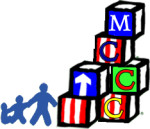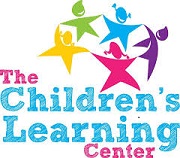KINDERGARTEN
Welcome to our newest students!
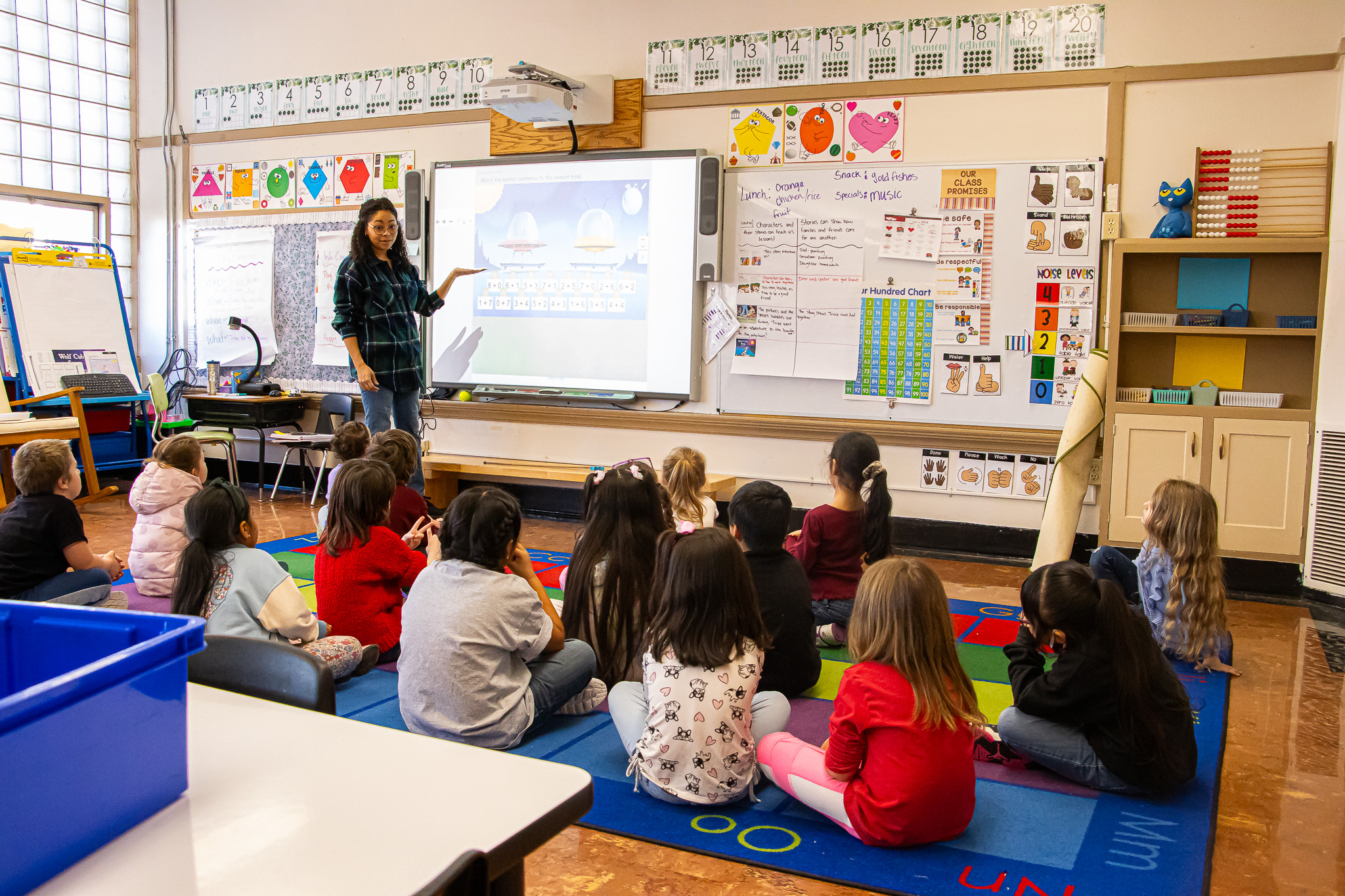
Kindergarten Welcome
Warm Springs K8 Academy: Thursday, May 2, 4-6pm
Buff, Madras, Metolius Elementary Schools: Monday, May 13, 4-6pm
Kindergarten Registration
We are so excited about having your child enroll in Kindergarten in a Jefferson County School District. We know just how much your child’s future, health, and safety mean to you. We take the responsibility of educating our students very seriously. We know you may have many questions, and our school secretaries will be the best resource.
Jefferson County School District 509J kindergarten classes are standards-based and designed to be developmentally and individually appropriate in addressing key areas of development: cognitive, social, and physical. The program’s focus is for teachers to deliver curriculum aligned with Oregon academic standards. Students will have the opportunity to develop fundamental understandings while beginning to apply these understandings to hands-on, real-life experiences. Our kindergarten teachers strive to make this first year of school the best one possible. This will help lay the foundation for them to be good, strong learners throughout their whole academic career.
Follow these steps to get your child ready for their first year!
- Find your area school. 509J has 7 options for elementary. These are Madras, Buff, Metolius, WSK8, Big Muddy, 509J Online, and our Dual Language Program.
- Our Kindergarten Welcome Events are coming up! There, you’ll collect a kindergarten enrollment packet. Fill it out and return it to the school with the required documents.
- Gather your documents. Parents or guardians will need proof of address, birth verification, and immunization records.
- Take a look at our 24-25 school calendar for important dates like first day of school, breaks, and more. Schools will be reaching out to families to let them know when kindergarten students will attend.
Elementary Contacts
Buff Elementary 541-475-2457
Secretary: Jazmin Say
Madras Elementary 541-475-3520
Secretary: Maritsa Salgado
Metolius Elementary 541-546-3104
Secretary: Lark Earnest
Warm Springs K-8 541-553-1128
Secretary: Heilan Gonzalez
509J Online 541-475-8267
Secretary: Kayla DuPont
Mariposa Dual Language 541-475-2819
Secretary: Esteffany Galan
Resources for parents of children ages 0-5
How to prepare your child for Pre-K and Kindergarten
Kindergarten Readiness Information for Families
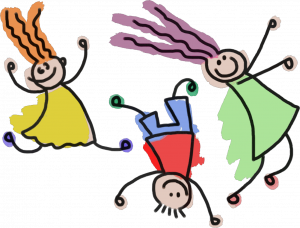
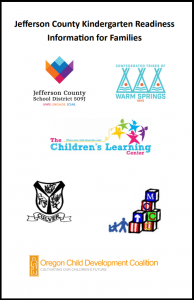 The document information was provided by the Early Learning Division and the Oregon Department of Education. Information provided is from one-page handouts based on the Oregon’s Early Learning and Kindergarten Guidelines.
The document information was provided by the Early Learning Division and the Oregon Department of Education. Information provided is from one-page handouts based on the Oregon’s Early Learning and Kindergarten Guidelines.
Background:
Oregon’s Early Learning and Kindergarten Guidelines are for everyone who interacts with children ages three-six years old. Through alignment of, and, in some cases, adjustments or additions to the goals and progressions identified in the Head Start Early Learning Outcomes Framework and the standards identified in the Common Core State Standards for Kindergarten, this document offers a shared view of and common vocabulary for child development and learning from age 3 through the end of kindergarten. The Early Learning and Kindergarten Guidelines include a continuum of development and learning in five domains: approaches to learning, social-emotional development, language and communication, literacy, and mathematics.
Approaches to Learning
Approaches to Learning refers to the skills and behaviors that children use when they are learning. Skills and behaviors in this area:
- Managing emotions
- Following rules and routines
- Taking care of materials
- Managing actions, words , and behavior
- Maintaining focus and attention
- Remembering directions and tasks
- Being a flexible thinker
- Being interested and curious
- Taking initiative
- Creatively thinking and communicating
- Using imagination
Adults can help support children’s development in this area by:
- Speaking, reading and singing together
- Speaking, reading and singing together
- Encouraging cooperation
- Playing games with rules
- Asking questions
- Offering choices
- Encouraging children to demonstrate skills, behavior, and knowledge in multiple languages
- Using familiar cultural references
- Modeling positive ways to solve problems
- Encouraging children to work together on a shared activity
- Talking about feelings
- Setting up a reliable schedule and routine
Mathematics
Early math includes counting, patterning, recognizing shapes, measuring, and sorting. Skills in this area include:
- Saying or signing number words
- Recognizing small quantities of objects
- Creating simple patterns
- Matching like items
- Using tools to measure weight, height, & temperature
- Counting
- Understanding directional words
- Naming shapes
- Comparing objects
- Estimating the number of objects in a group
Adults can help support children’s development in this area by:
- Encouraging counting
- Providing support and/or accommodations for children to access math activities
- Playing board games that require counting spaces
- Encouraging children to help sort laundrY
- Reading stories with numbers
Singing number songs - Pointing out numbers in the environ ment
- Using a growth chart to measure height
- Involving children in cooking activities
- Encouraging children to compare sizes and identify shapes of natural objects found outside
- Pointing out the time on the clock for daily routines and activities
Literacy
Early literacy refers to the knowledge and skills that prepare children for reading and writing. Skills in this area include:
- Understanding language
- Understanding how print is used
- Naming letters
- Producing letter sounds
- Understanding stories
- Asking questions about stories
- Writing for a variety of purposes
- Identifying pictures in stories in the home language
- Labeling book parts and features
- Identifying and counting syllables in spoken words
Language and Communication
- Using language or gestures
- Listening to others
- Asking questions
- Communicating thoughts, feelings, and ideas
- Answering questions
- Following directions
- Using new words
- Listening to and responding to others
- Pointing and using nonverbal gestures
- Telling stories as an aspect of family or culture
Adults can help support children’s development in this area by:
- Sharing conversations
- Asking questions
- Using new words
- Creating opportunities to make choices
- Reading books with rhymes
- Encouraging children to communicate with each other
- Playing word games
- Singing songs
- Supporting development of the child’s home language
- Encouraging every child to communicate, whether through spoken language, gestures, or communication devices
Social-Emotional Development
Social-emotional development refers to the ability to form relationships and manage emotions. Skills and behaviors in this area include:
- Being part of a group
- Recognizing one’s own feelings
- Having positive relationships
- Cooperating
- Recognizing the feelings of others
- Caring for others
- Expressing feelings in a productive way
- Playing with others
- Solving problems when conflict arises


